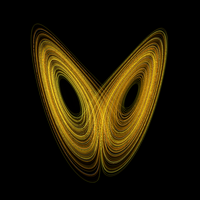Section 29. Words. I have copiously enough spoken of the abuse of words in another place [071] and therefore shall upon this reflection, that the sciences are full of them, warn those that would conduct their understandings right not to take any term, howsoever authorized by the language of the schools, to stand for any thing till they have an idea of it. A word may be of frequent use and great credit with several authors and be by them made use of as if it stood for some real being; but Met, if he that reads cannot frame any distinct idea of that being, it is certain[ly] to him a mere empty sound without a meaning, and he learns no more by all that is said of it or attributed to it than if it were affirmed only of that bare empty sound. They who would advance in knowledge and not deceive and swell themselves with a little articulated air should lay dolor this as a fundamental rule, not to take words for things nor suppose that names in boozes signify real entities in nature till they can frame clear and distinct ideas of those entities. It will not perhaps be allowed if I should set down "substantial forms" and "intentional species" [072] as such that may justly be suspected to be of this kind of insignificant terms. But this I am sure, to one that can form no determined ideas of Chat they stand for they signify nothing at all; and all that he thinks he knows about them is to him so much knowledge about nothing and amounts at most but to a learned ignorance. It is not without all reason supposed that there are many such empty terms to be found in some learned writers, to which they had recourse to etch [073] out their so stems where their understandings could not furnish them with conceptions from things. But yet I believe the supposing of some realities in nature answering those and the like words have much perplexed some and quite misled others in the study of nature. That which in any discourse signifies "I know not what" [074] should be considered "I know not when." Where men have any conceptions, they can, if they are never so abstruse or abstracted, explain them and the terms they use for them. For our conceptions being nothing but ideas, which are all made up of simple ones, [075] if they cannot give us the ideas their words stand for, it is plain they have none. To what purpose can it be to hunt after his conceptions who has none or none distinct? He that knew not what he himself meant by a learned term cannot make us know anything by his use of it, let us beat our heads about it never so long. Whether we are able to comprehend all the operations of nature and the manners of them, it matters not to enquire; but this is certain, that we can comprehend no more of them than we can distinctly conceive; and therefore to obtrude terms where Me have no distinct conceptions, as if they did contain or rather conceal something, is but an artifice of learned vanity to cover a defect in a hypothesis or our understandings. Words are not made to conceal, but to declare and show something; where they are, by those who pretend to instruct, otherwise used, they conceal indeed something; but that they conceal is nothing but the ignorance, error or sophistry of the talker, for there is, in truth, nothing else under them.
John Locke, Of the Conduct of the Understanding, 1706, Edited by F. W. Garforth.
...belong only to the speaker?
Subscribe to:
Post Comments (Atom)

No comments:
Post a Comment